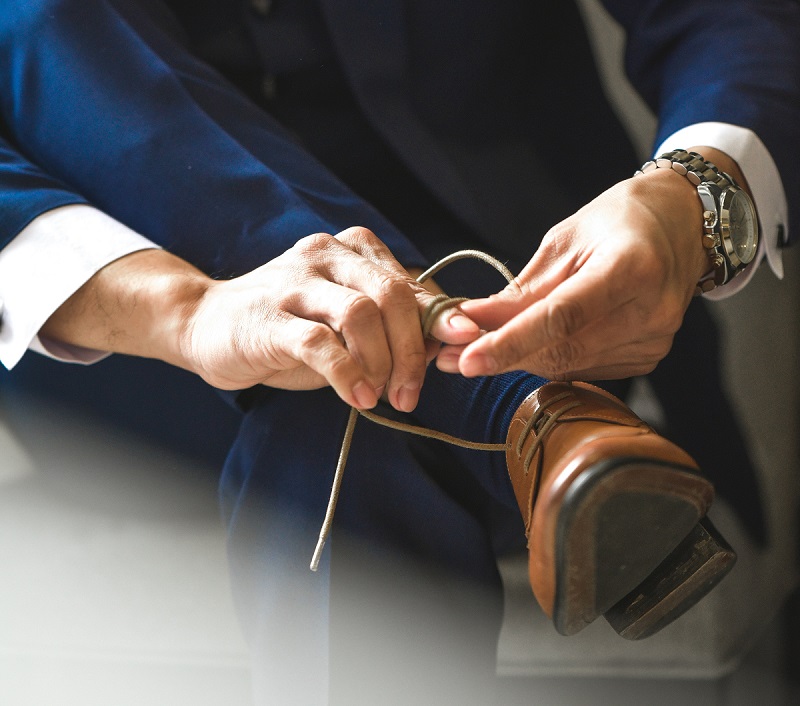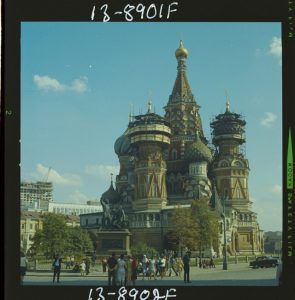by Casey Alexander
There was no reason to reopen the door to the office–they’d made it clear that John wasn’t needed inside–but some instinct made him try anyway. The handle fell a quarter of an inch beneath the force of his wrist, then clicked defiantly still; the impact of metal on metal echoed all the way through him. There would be no reentry; the morning had turned him into a codeless intruder. 6-6-7-8 was the last combination he’d learned; whenever an employee was fired from Bradford, the code was changed for security reasons.
At Devcon they’d made him surrender his keys for fear that he’d come back shooting; at Warner and Sons they’d simply removed his name from the “In/Out” board, taking it on faith that he would stay out forever. John shuffled off to his car. Honestly, what had he done wrong this time? It was true that he’d sold fewer pens than they’d hoped, but his paperclip sales had exceeded all expectations. He thought of the clear plastic pens with their foolish little black hats. He’d tried to care about their destiny–had told himself that somebody could seize one, write out a solution to the problems that ailed mankind. Somehow the argument always broke down before he got all the way through it. Why couldn’t this person use a pencil, or a competitor’s pen? Better yet, they could type the whole thing out. He knew that most of the pens would roll into unswept corners, or be used to bring phrases like “Hawaiian shirt day” into the world. Considering this, it was hard to put much heart in his handshakes, hard to tell the customers they’d be amazed by the reduction in wrist strain.
Still, John could and should have overcome these thoughts by replacing them with visions of money. What did it matter, really? Selling pens or aluminum siding, digging graves or designing cathedrals–a person worked to get paid. This payment could be exchanged for sustenance and joy, for golf clubs and haircuts and drinks in triangular glasses. He had tried to adopt this perspective, but he couldn’t help but feel that a lot of energy was going to waste. The man who made up a new product, the man who made commercials about it, the man who sold it in a booth at the mall, the man who drove it to the dump once people got tired of it–weren’t they needed more elsewhere? It was John’s understanding that most of the world was a gaping wound; surely some of these people were qualified to stitch it together. Sadly, he considered himself rather useless in this regard: he didn’t have the head to write human rights declarations, or the stomach to amputate limbs; he was too shy to teach refugees to read Shakespeare and too puny to drive stakes into the ground (this was also the reason why he couldn’t separate the world’s warring peoples by hand).
Nevertheless, John could type and he could read; with effort, he could sit through an eight-hour day without screaming. These attributes, taken together, allowed him to realize his duty as a citizen and a man: he kept himself off the streets. That is, he’d done so until this morning, when heads were shaken and wishes of luck were exchanged. He’d been wished luck by someone whose face said he’d need it three times in the past two years. They were disappointed in his lack of drive; that’s what the manager at Bradford said. John was disappointed himself, and confused: why didn’t he care to claw his way up to Director of Sales, Head of Marketing, or Vice President in Charge of Special Events? Why didn’t he wake up in the night, shouting, “These pens will write for a mile!”? His friends told him with pride that they had been named this or that, had performed some meaningless task well enough that somebody noticed. Why couldn’t he do the same? As a child he’d received dozens of A’s and frequent pats on the head; according to his parents and teachers, he was really going to go places. Now that he was an adult, it seemed to him that there was no place to go.
In practical terms, John knew he was much better off than most; he wondered if his unhappiness, coupled with the knowledge that he had nothing to be unhappy about, did anything to balance things out. Somewhere in the world, he supposed, there was an overjoyed man dodging landmines, remarking on the clarity of the morning.
He put his car in reverse, swung out of the parking lot for the last time. With some dread he headed east on the highway. His newly bought home was at the end of a ten-minute drive; usually he and Johnny Cash sang duets most of the way, but even singing about dejection took a certain amount of enthusiasm–more than he had at the moment. John pulled into the driveway. He walked up to the door with his cardboard box of belongings, half expected his key not to turn in the lock. But the doorknob yielded, and the house stretched enormous and empty before him. Every room was like an open mouth laughing at his pretension. He was a fool for thinking he could afford the place; a fool for thinking the world would look different if seen through a picture window. He dropped the box in the middle of the gleaming living room floor, fell into the one armchair they had brought from their old apartment. His wife Annie wouldn’t be home for another three hours.
Annie. He remembered her smooth cheek against his the first time he had been fired. There had been shoulder massages and chamomile tea, a spirits-raising trip to Lake Michigan. “It happens to everyone,” she’d said. Somehow, she was convinced, a simple mistake had been made: personalities had conflicted, talent had been overlooked. Like a turned ankle, it was a painful but minor misfortune–a full recovery could be expected. The second time, nine months later, her body was stiff as she hugged him. She wanted more details about what they had said, what he had done and (maybe) forgotten to do at work in the weeks before. “What if you tried something else?” she said. Something besides sales, or perhaps (her tone said), something besides being objectionable to others.
He remembered the night that they’d met at his friend Benjamin’s party. A black braid fell across her left shoulder, rested on her lavender dress. She’d offered John her hand–the hand that wrote out lessons in chalk, danced across a piano whenever she felt something she couldn’t express. Loving her hadn’t changed his life as much as he’d hoped that it would; he was still cold six months out of the year, still spent most of his time trapped in one unpleasant space or another. Even so, the few hours they spent together in the evenings were the closest he’d come to relief; he dreaded breaking the news.
How long could he keep her at this rate? And what about the children they were hoping to have in the next couple of years? Annie wanted to be with them at home, at least until they started school; even if she stayed at her job, there would be babysitters (and doctors, and crawler-makers, and birthday clowns) to pay. His work was not who he was, and he had always said so, but the critic in his mind asked what he was, realistically, without an income to offer. An ugly dust catcher, a dopey figurine cluttering up the house.
When Annie came home, John explained what he was doing sitting at the kitchen table with his head in his hands.
“Again?” she said, the word escaping from her before she could nail it down. “What happened?”
The truth, that he didn’t know exactly, seemed nonsensical when he said it out loud. “I guess they didn’t think I was driven enough.”
Silently, she sighed. Heaven knows she’d experienced moments like this before–like when one of the children drew on another with permanent marker, or gave the class hamster his freedom by letting him go in the hall. The thing to do was to breathe instead of thinking; if she held her nerves for three or four seconds, a solution usually replaced the desire to throw a book at the wall.
As she looked at her husband, insecurity crossed her face like a cloud. Had she mismeasured this man? She’d always known he didn’t love his work the way he loved Sartre or Tolstoi or grass underneath his back, but she believed he was bright enough to manage–and to realize that a person had no choice but to manage.
“It’ll be alright,” she said mechanically. “I guess we can make it on my salary for a couple of weeks.” She thought of the mortgage agreement they signed on the strength of two incomes, of the many rooms they had to warm and light and make livable with curtains at least.
“But…,” she went on, turning on the burner under the teapot, “maybe you should go see Dr. Light.”
“Dr. Light?” John’s eyes grew behind his gold-framed glasses. “What’s he going to say? ‘Congratulations, you’re crazy! Have this prescription filled.’”
There was a brief, wounded silence. “So you think I’m crazy?” she said softly.
“No…no, of course not,” John said, wishing he could retract the remark like a yo-yo. “Something like that’s totally different.” The doctor had helped Annie through the death of a friend five years earlier, shortly before she and John met. “What would I say to him, though? I mean, unless he’s hiring, I don’t see how he can help me.”
“He might have some ideas, though…about what’s been going on,” Annie said. She was running out of explanations herself.
“I just don’t believe in that sort of thing…unless you have a legitimate problem.” He named several situations in which one might benefit from a well-paid stranger’s intervention, starting with a relative’s passing and rounding out the list with hearing voices. “And it’s nothing like that,” he said. “I’ve just been having some bad luck I guess.”
“Just go talk to him,” she said. “What harm could it do?”
“For one thing, it’s going to cost a fortune. I can’t see spending that kind of money when I don’t have anything coming in,” he said.
Annie’s frustration broke free. “So you don’t even want to find out what’s wrong?” she cried. “How long is this going to go on? What can I do if you won’t let anyone help you?” In a second John realized what she could do, and soon would if he didn’t agree. He jumped in to drown out the thought that was blaring in both of their minds. “All right, I give up,” he said.
Three days later he was opposite a man in a sweater discussing his parents’ marriage. They liked each other, had liked each other when he was a child; somehow this appeared to be the wrong answer to the man’s question. “You know, John,” Dr. Light had explained, “most problems start early on. As a matter of fact, there are very few adults in this world. The majority of us are recovering children.” John pictured the man wearing a beanie with a pinwheel on top; he wondered what he could do to recover from this waste of an hour. The doctor went on. The first order of business, he said, was to discover where exactly the wound lay–in the victim’s body, mind, or soul–and how it had been afflicted. Only then could the appropriate salves be applied.
They considered one would-be perpetrator after another (Dr. Light seemed disappointed to learn that John’s gym teacher was benign), marched through year after uneventful childhood year. John described lovingly-lit candles on a He-Man cake, plastic wheels and popsicle sticks bearing strawberry refreshment. None of it was what Dr. Light had in mind. “In a lot of cases, we’re held back by these early traumas.” He mentioned a man he knew who could have become the next Gandhi if his mother had bought him a turtle.
John couldn’t relate to this person. He had been given all the appropriate pets. No hairbrush, or hand, or swinging belt had ever been raised against him–nothing more than a well-meaning voice. Maybe it was a loss, then? The doctor looked at him hopefully. No one had left him but his grandparents, and they’d departed at the end of long lives, leaving him with sound memories, a set of bocce balls, and a shoeshine kit from the forties.
“You have to think more deeply, put yourself back into your three-year-old body. We’ll get to the bottom of this.” At the end of the hour, he shook John’s hand, said that they’d reconvene the following Monday.
The seven days between sessions made John feel more unemployed. The idle period, like a hole in a sock, was growing with every hour, from a light anecdote into a real disgrace. Annie was comforted, at least, to know that the issue was being explored.
As he scanned the job ads, John considered what the doctor had said about the subconscious. One of these days, he would be handed a note from offstage. “You are gay,” the note would read. Or, “You love coleslaw although you’re convinced that you hate it. Stop trying to deny who you are.” Where were these facts being stored in the meantime? Possibly in his earlobe. It seemed like a good hiding place; something he might punch a hole in without causing injury was probably estranged from his brain as it was.
Maybe his problem had something to do with sex; Dr. Light said most problems were connected to it somehow. This didn’t seem to be the culprit in his case. John enjoyed his nights with Annie; he didn’t see the need to incorporate fire, the president’s desk, or John Tesh into their relationship. No, this wasn’t it. Foolish as it felt, he would have to keep plowing the fields of his mind, as the doctor suggested, until he unearthed a boulder.
The second week Dr. Light encouraged John to consider events that happened in the world during his childhood years.
“I really don’t think anything bad happened to me when I was a kid,” John said to the man again. He tried to explain how he felt. Human activity, he began, seemed to revolve around garbage these days; one had to determine his position in relation to it. Would he assemble it, pack it in boxes, appear on TV to promote its sale? On Saturdays he got to admire it in stores, take it home, plug it in or zip it up, enjoy whole minutes of exhilarating distraction. He got to buy experiences, too–not only coffee, but the experience of savoring it among friends. If he was really successful and lucky, he’d receive the honor of his friends’ sorrow as they realized they were inferior to him (because they wore coats of a lesser fabric, or owned less versatile appliances). “Then I go back to work every Monday, sell more junk so that I can buy more. It’s like we’re all running around in circles.”
Dr. Light uncrossed and recrossed his legs. “Hmmm,” he said. “Let’s try to get back to the past. You’d be surprised how certain events can skew a person’s perspective.”
John went through the tragic events of the era: the Challenger explosion (he hadn’t quite understood it, but Punky Brewster and his older sister were inconsolable), whatever prompted “We Are the World”. There was the Iran Contra Affair (this qualified as a tragedy in that someone named Oliver North was on TV for a week during school vacation, where Jeopardy should have been), and later the suicide of Kurt Cobain. He remembered the flannel of his teenage years, and how music, metaphorically speaking, had suddenly gained hundreds of pounds. For a while, music and pain had lived very close together. He didn’t see what any of it had to do with him.
“Let’s think about more specific events, John. Every tear tells us a story. Can you remember a time when you might have cried at school, or at home?”
John did remember one incident when he was five; he started laughing as he recalled it. On the playground, another boy had stepped on his shoelace, untying the bow that he’d taken pains to construct.
“John!” Dr. Light cried, sitting up in his chair. “I think we’ve hit upon something!”
“What? What do you mean?”
“This shoelace,” he began, standing up and walking around the small room, “…it symbolizes your personhood. After all these years, this is still how you see yourself–as a strip of squashed nylon underneath somebody’s shoe. This explains everything!”
John closed his eyes. It was the most absurd thing the man had said yet. On the other hand, there was something that everyone else seemed to know, something he’d never been able to grasp. There was something different about his mind–as if something vaguely poisonous had been added, or something protective removed. Was it possible that this was the reason behind it? Now that he thought of it, he had been pretty upset that day on the playground. Maybe he had felt like nothing. Maybe this moment was the beginning of his ongoing end.
He opened his eyes, let out a spectacular scream–it shook Dr. Light’s many diplomas, shook the earth to its core.
This was it, and what a relief it was! He had been ruined after all!
The world took on a new sharpness like it had when he’d first gotten glasses. Instantaneously, he understood–why he didn’t sell with his soul, why he’d always felt like something was missing from life no matter what he did. Why things like the annual release of the greatest telephone, ever, generally failed to move him, and why he’d never been able to bring himself to pick up heavy weights that he might set them back down in triumph. It was clear why the beauty of data entry and meetings had been lost on him all these years. Because of the shoelace trauma, he had failed to fall in love with himself. And, naturally, since he didn’t love himself, he couldn’t love anything else. No wonder he didn’t like karaoke! He didn’t value himself enough to enjoy it.
What he had to do, the doctor explained, was reinflate the shoelace in his own mind–make it round again, make it whole again, in order to begin building himself.
“I encourage you to write about this journey,” the doctor said to John after they’d gone through an entire box of Kleenex between them. “Your story might encourage others to come forward, to examine their pasts, to begin the process of healing.”
John reread the motivational note that the doctor had written him as he floated down in the elevator: “You, like your shoelace, are an integral sphere. Both of you are capable of holding things together as needed. Fight to bounce back, John! Nylon is resilient and so, my friend, are you.”
John smiled, folded the note and safeguarded it in his pocket. Acknowledging his own destruction was a courageous first step. He would love his duty, his work, his nation–everything that should be loved–once he learned how to love himself. The road back to roundness would be perilous, long, but John was ready to gather his grit. “Onward!” he thought, and stepped out into the sunshine.






Be First to Comment